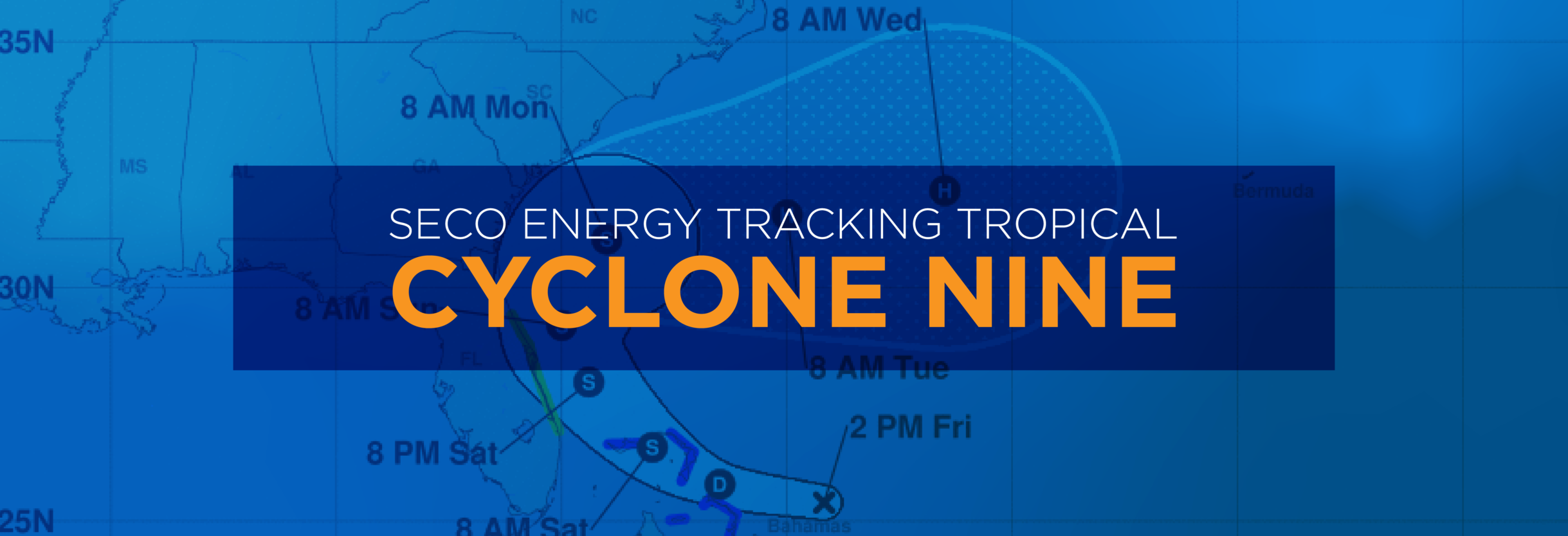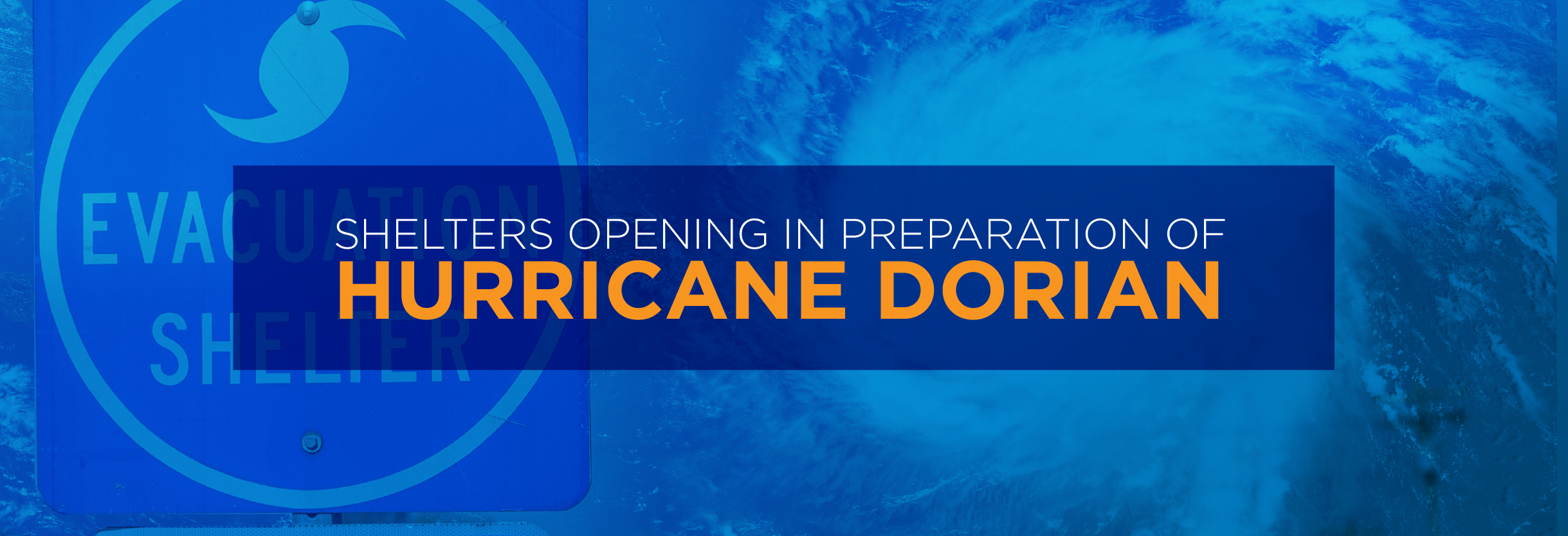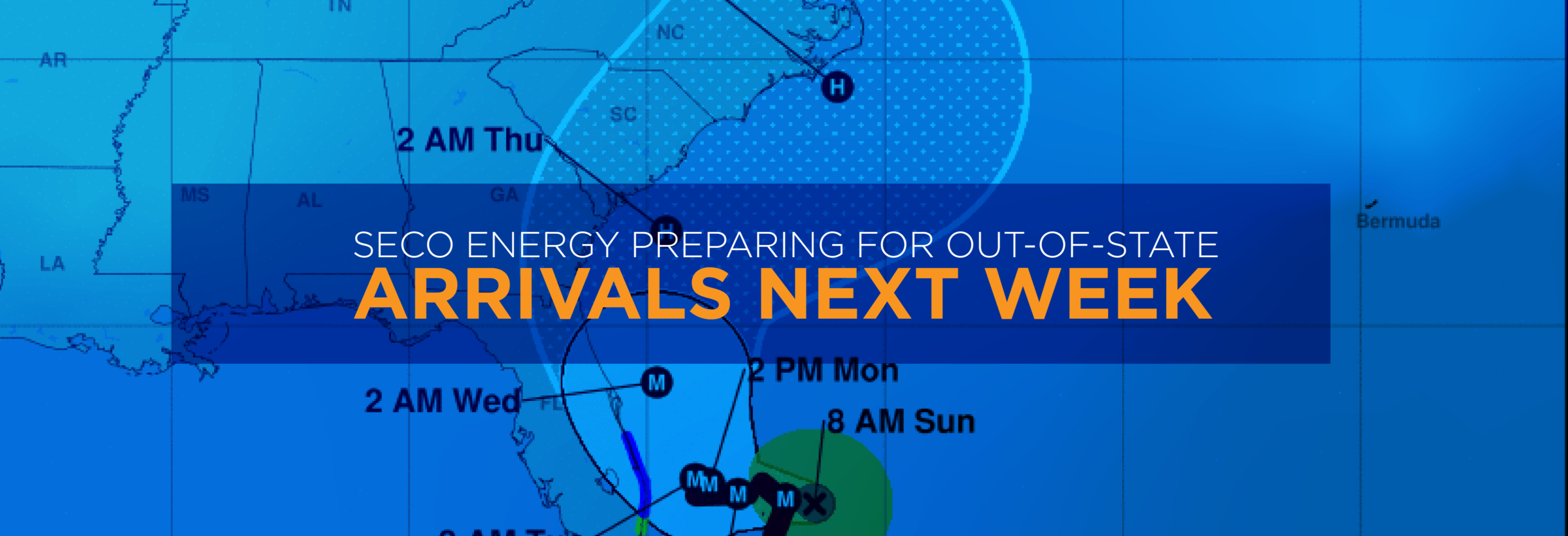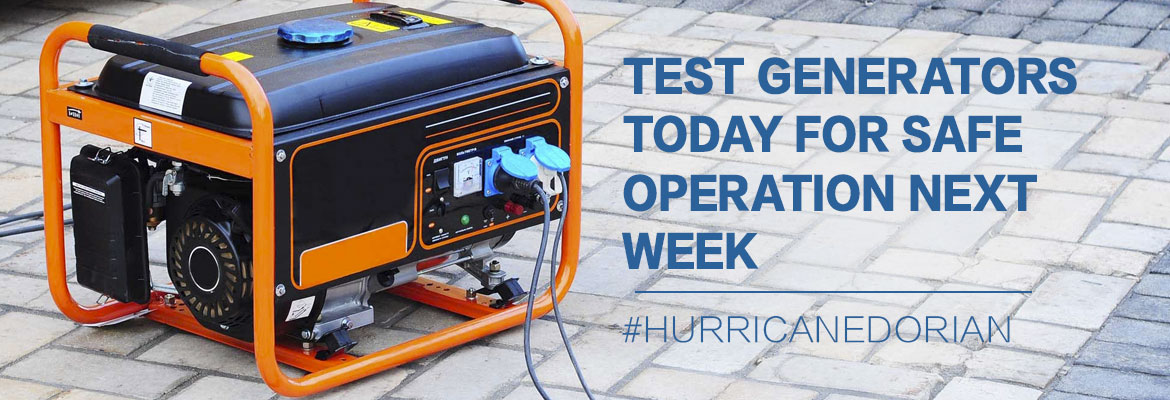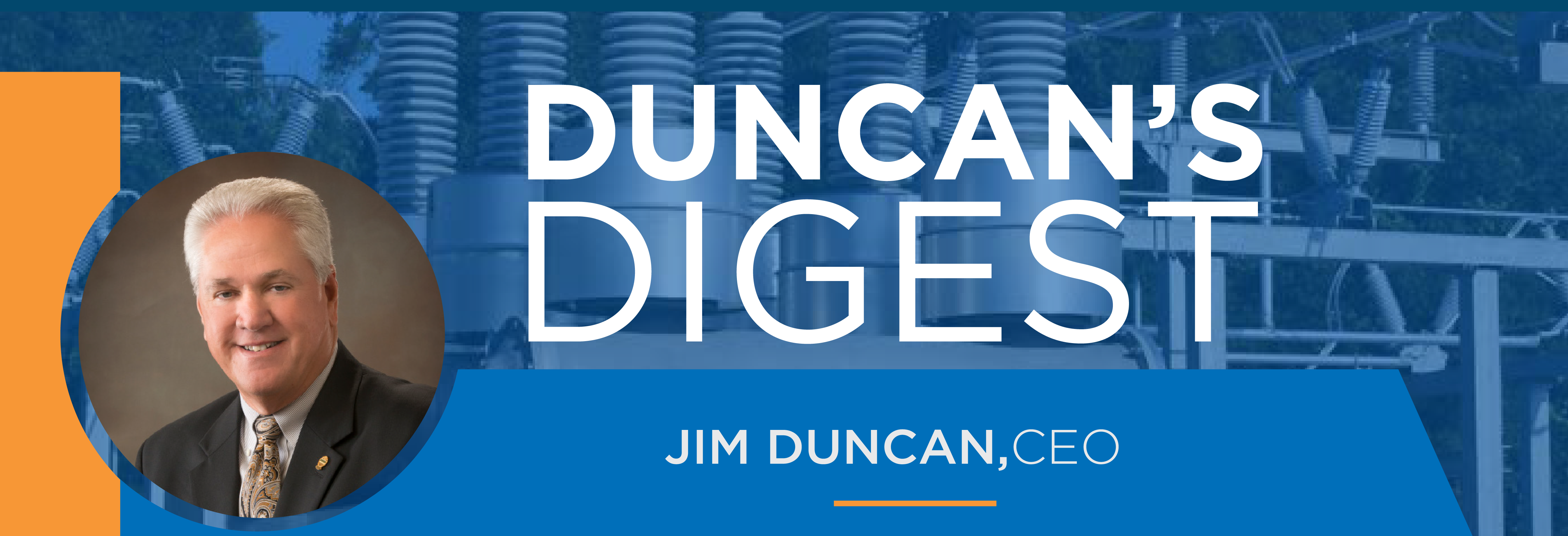
Welcome to our new Hurricane Handbook. Named storms can cause extended outages even for a system like SECO’s that is well built, constructed and maintained. To prepare for the worst, review our people/pets preparation checklists, outage notification enrollment instructions, Florida Special Needs Registry details, restoration priorities, damage assessment warnings and lessons on hunkering down. Learn about generator safety by to watch our newest video. For the chance to win an 8,000 watt Briggs Stratton portable generator, click on the website’s home page banner to register at SmartHub (SECO’s online account platform) by October 15. All members with SmartHub accounts as of October 15 will be entered in the drawing.
Sincerely,
Jim Duncan
Chief Executive Officer
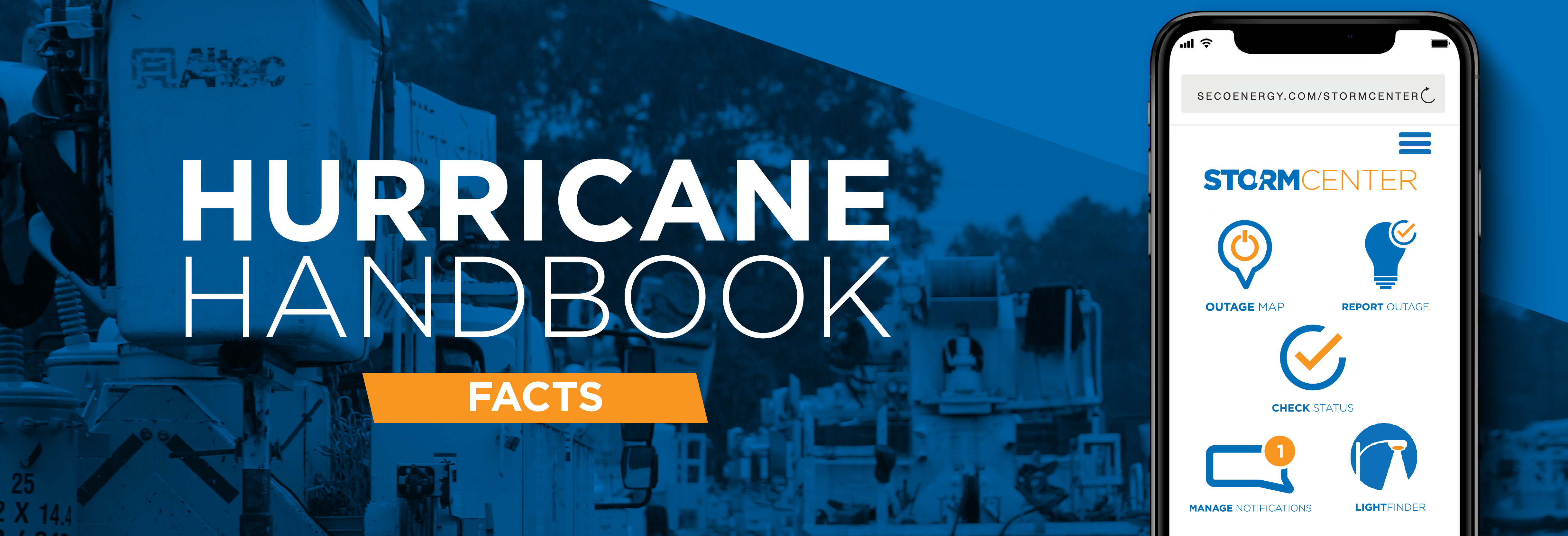
HURRICANE STRENGTH STATS
The Saffir–Simpson wind scale classifies hurricanes that exceed the intensities of tropical depressions and tropical storms into five categories distinguished by the intensities of sustained winds.
CAT 1 74 to 95 mph
CAT 2 96 to 110 mph
CAT 3 111 to 129 mph (major)
CAT 4 130 to 156 mph (major)
CAT 5 157 mph or higher (major)
Even tropical storms can cause significant damage and flooding. Most storm casualties are from drowning and not wind. Always heed weather warnings, evacuate as instructed and don’t drive into high water. Keep your family safe.
DISCONNECTING IN ADVANCE: MYTH OR FACT
Many years ago, it was a common practice for utilities to completely de-energize their electric systems ahead of a storm in an effort to proactively prevent damage during the storm. SECO Energy does not employ this practice.
RESTORATION PRIORITY – WHO’S FIRST?
SECO Energy provides world-class reliability to 200,000+ homes and businesses. Outages due to weather, vehicle accidents, equipment issues, animal or tree contact with lines result in utilities being unable to guarantee 100 percent uninterrupted electric service.
During emergency restoration with widespread damage, SECO Energy’s first responsibilities are shelters, hospitals, schools and government agencies like emergency ops centers, fire stations and law enforcement facilities. SECO’s next priority is large commercial accounts providing food, water and damage-recovery supplies. Feeders with the largest number of members served are next. Our goal is to restore service to the highest volume of members as quickly as possible.

FLORIDA’S SPECIAL NEEDS REGISTRY
Register with the Florida Division of Emergency Management at floridadisaster.org before a storm hits to receive county specific lifesaving information. If an evacuation or emergency is declared, you will receive important options from local emergency management by signing up with your county’s emergency alert notifications (Alert Citrus, Alert Hernando, Alert Marion, Alert Levy, Alert Lake, Alert Sumter, Alert Pasco). Visit your county’s Emergency Operations online to sign up for the alerts you would like to receive.
MEMBERS USING MEDICAL EQUIPMENT
Residential members’ accounts coded as having medically necessary service are not the first priority after a storm with widespread damage. These members should prepare before storm season and anticipate the possibility of extended outages that could last for days. If you are dependent on electric-powered medical equipment, register with your county emergency management center’s Special Needs Registry. Most important, purchase a generator for use during power outages.
OUTAGE NOTIFICATION PREFERENCES
Visit us online and click StormCenter at the top right. Scroll down and select “Manage Notifications.” Log in with your account number or phone number. View and update your preferences for email, text or voice notifications. Set do not disturb parameters.
ADD STORMCENTER APP TO MOBILE DEVICE HOME SCREEN
On our website, click StormCenter. Select the Outage Map tile. Tap the Share Arrow. Select “Add to Home Screen” from options.
BOOKMARK DAILY RESTORATION PLAN MAP
SECO utilizes this interactive map when the Emergency Response Plan is activated. This map is different from the StormCenter outage map. The Restoration Plan Map displays the areas where crews are working each day and helps you know when you can reasonably expect service restoration. Access this map from the website home page banner during emergencies.
SUPPLY STOCK UP – SEVEN DAYS
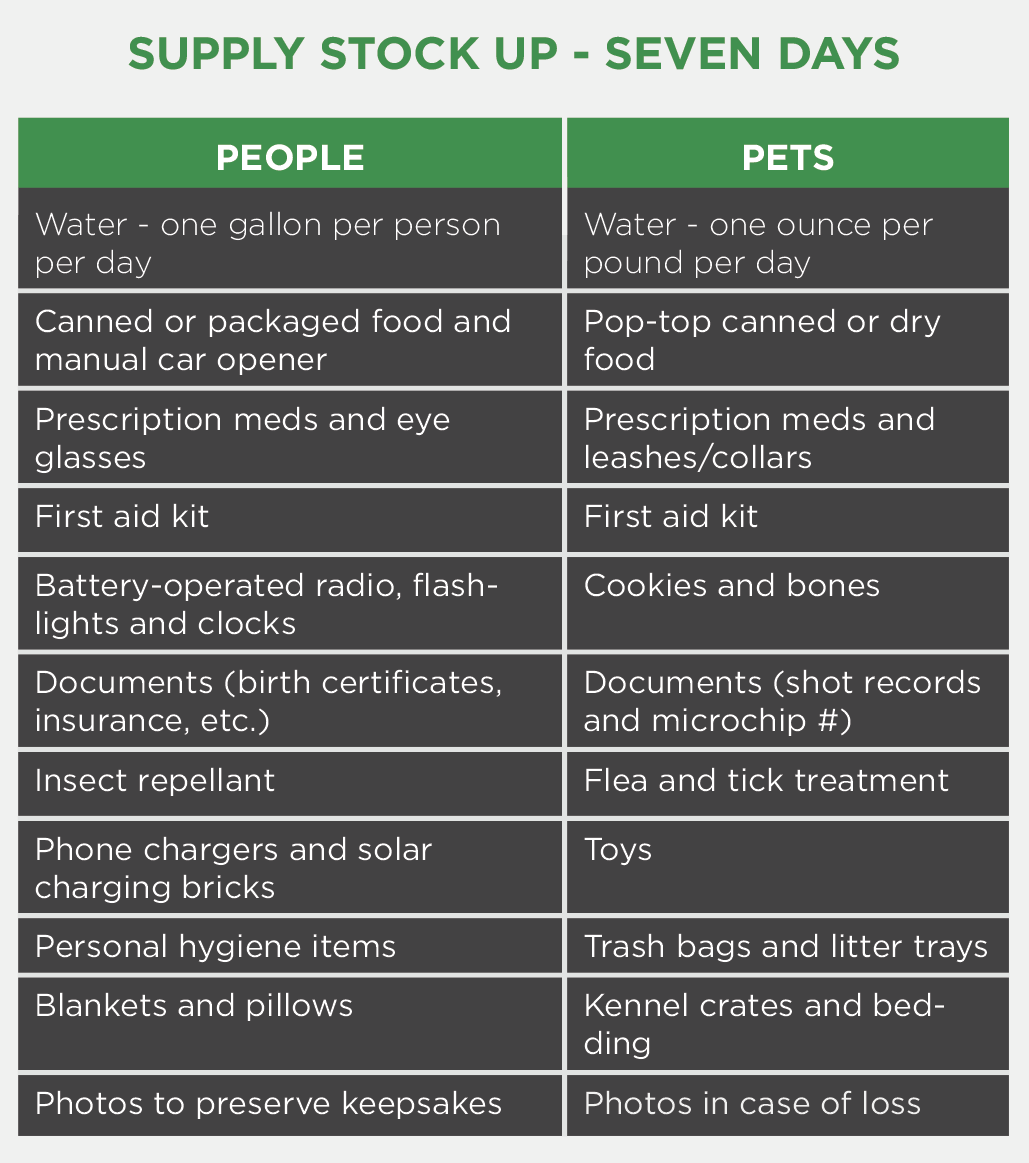
Turn your refrigerator and freezer to the coldest settings. Only open refrigerator and freezer doors when necessary. Move freezable foods into the freezer. A refrigerator will keep food cold for about four hours after a power outage; a full freezer will keep food frozen for about 48 hours. Move your emergency supplies into a secure room with no windows or fireplaces.
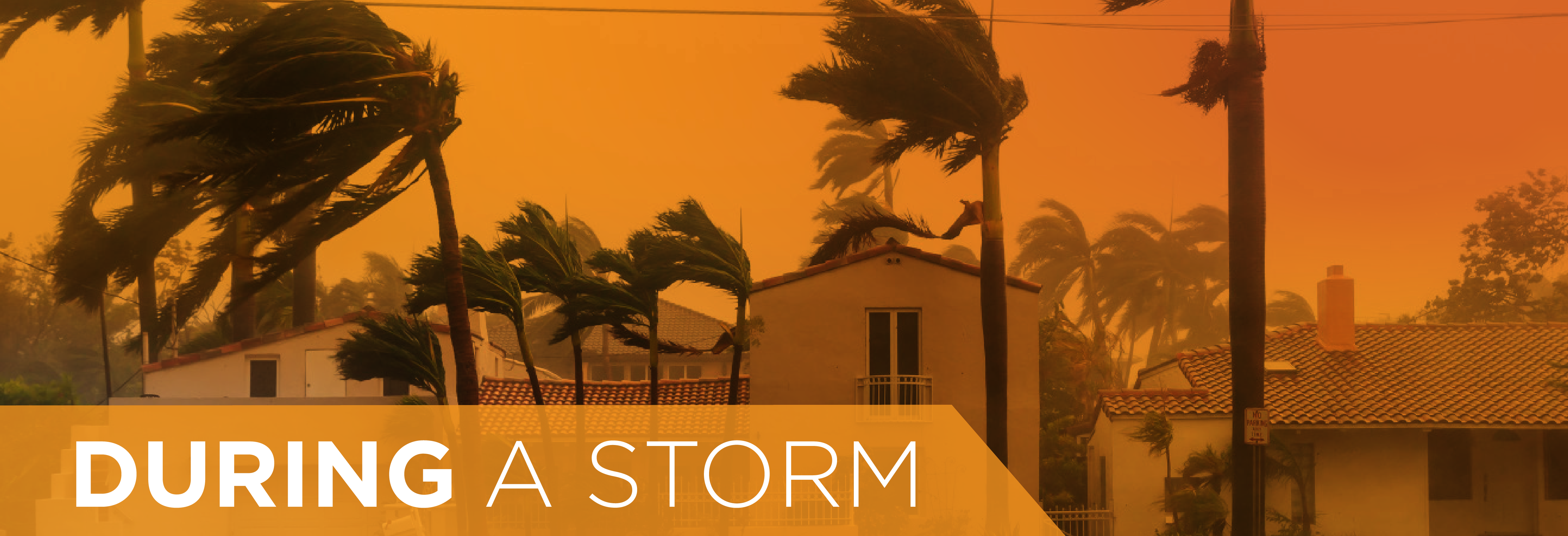
HUNKER DOWN – STAY INFORMED
During the storm, remain indoors and prepare to wait out the weather safely. Stay informed with a battery-powered weather radio. Be ready to re-locate your family and pets to a secure location in your home with no windows or fireplaces. Break out the family board games and preserve your phone’s battery power.
NO RESTORATION IN WINDS ABOVE 35 MPH
SECO Energy invests heavily in an aggressive vegetation management program to keep our overhead lines clear. Still, severe storms with high winds create tree-related outages. Once sustained wind speeds reach 35 mph, it is not safe to use bucket trucks or perform restoration. When wind speeds have fallen below 35 mph, SECO deploys employees and mutual aid to begin restoration efforts.
TORNADOES – WATCH VS WARNING
Tornadoes are vertical funnels of rapidly spinning air often referred to as nature’s most violent storm. Winds can reach speeds of 300 mph. Tornadoes are commonly associated with severe thunderstorms. It is extremely likely that during a hurricane you may experience a tornado.
TORNADO WATCH: Tornadoes are possible in/near the watch area. Check supplies and your safe room. Be ready to act fast if a warning is issued or you suspect a tornado is approaching.
TORNADO WARNING: A tornado has been sighted or indicated by weather radar. There is imminent danger to life and property. Go immediately to your safe room, interior room or hallway. Avoid windows.
IF YOU EXPERIENCE A TORNADO, stay clear of downed power lines and damaged buildings. Treat downed lines as if they are energized.
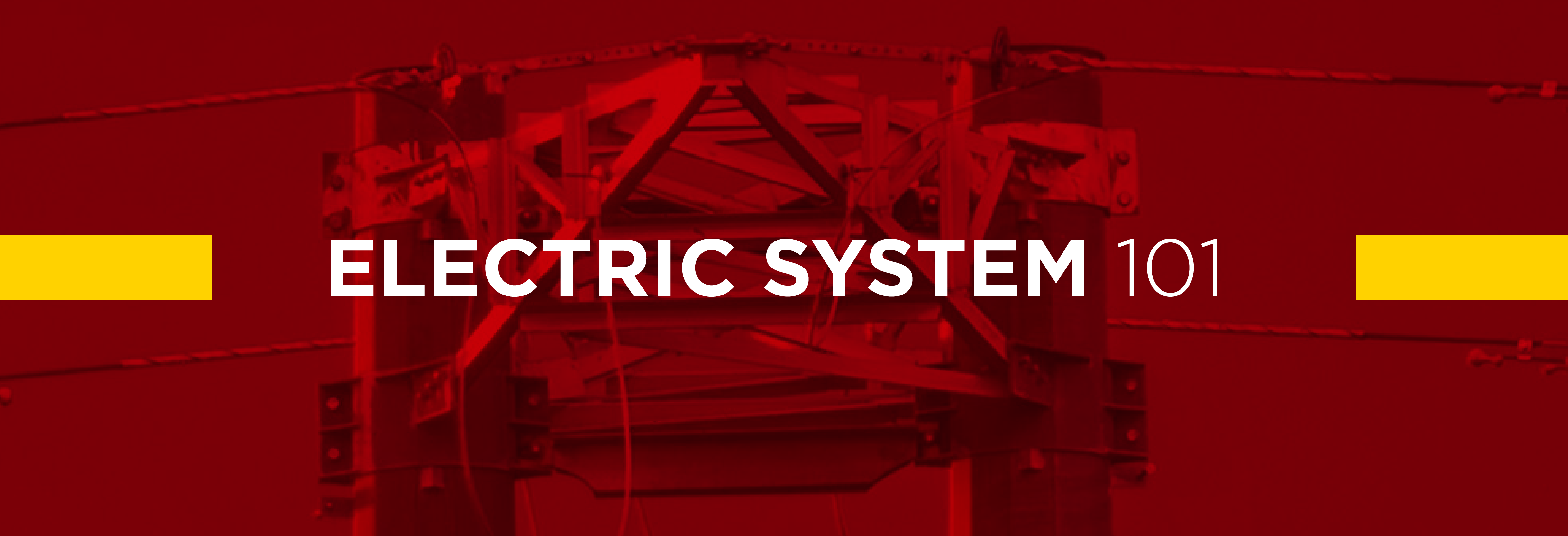
HIGH VOLTAGE TRANSMISSION LINES: These supply power to SECO’s 48 substations which serve 200,000+ homes and businesses. If a storm damages a transmission line, substations also lose power. Much of the transmission serving SECO’s substations is owned/operated by Duke Energy. If Duke’s lines are down, SECO Energy cannot restore power to our members until these lines are repaired.
DISTRIBUTION SUBSTATION: A substation serves thousands of members. Our line crews inspect substations to determine if problems stem from transmission lines feeding into the substation, the substation itself, or if problems exist further down the feeders and lateral lines.
FEEDER DISTRIBUTION LINES: When problems cannot be isolated at a substation, distribution lines are inspected. These larger lines originate from substations and distribute power to large groups of members in our service area.
LATERAL DISTRIBUTION LINES: These smaller lines deliver power to transformers, either mounted on poles or placed on pads for underground service and deliver power to smaller groups of members in less densely populated areas.
SERVICE LINES: The service line is the line between a transformer and your residence or business.
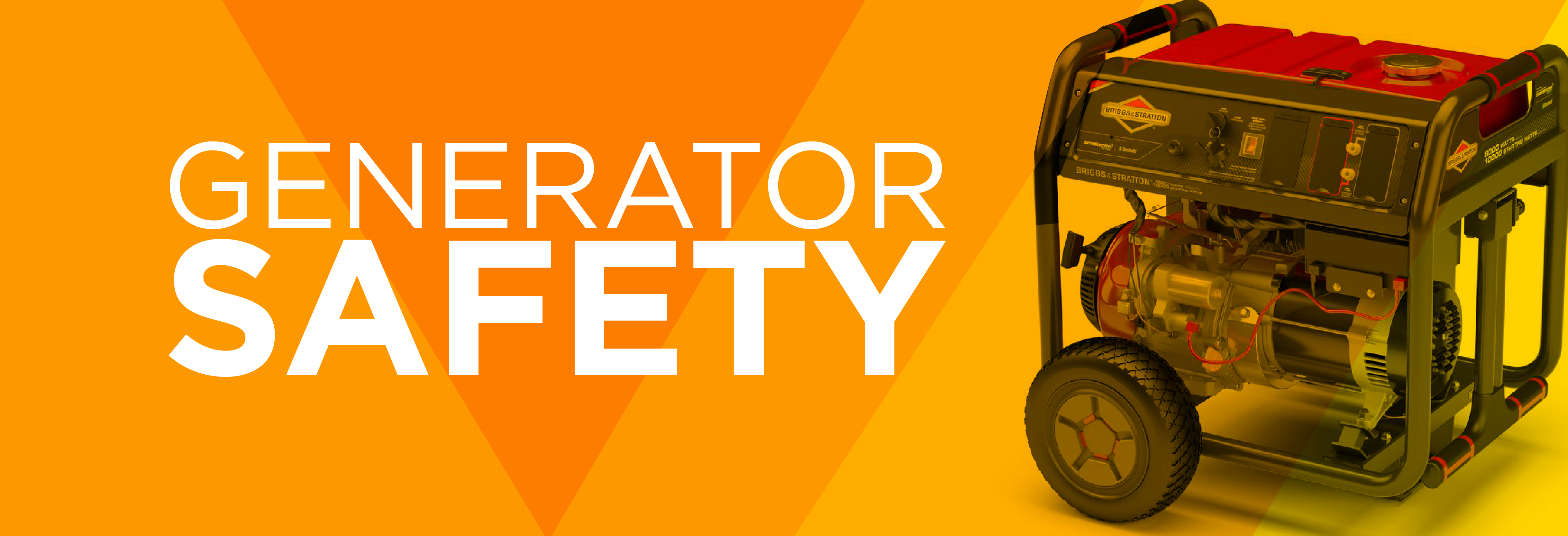
STATIONARY GENERATOR: A permanently affixed generator installed by a licensed technician with an approved disconnect and transfer switch that isolates your home’s circuits from SECO Energy and eliminates the risk of backfeeding on utility lines.
PORTABLE GENERATOR: A common type of generator that does not require a licensed technician to install. Use extension cords to plug certain appliances into the outlets on the generator. Never operate indoors.
More lifesaving information on generator safety can be found on our website. Click on the generator banner for a chance to win a new 8,000 watt Briggs Stratton portable generator. Enter by October 15.
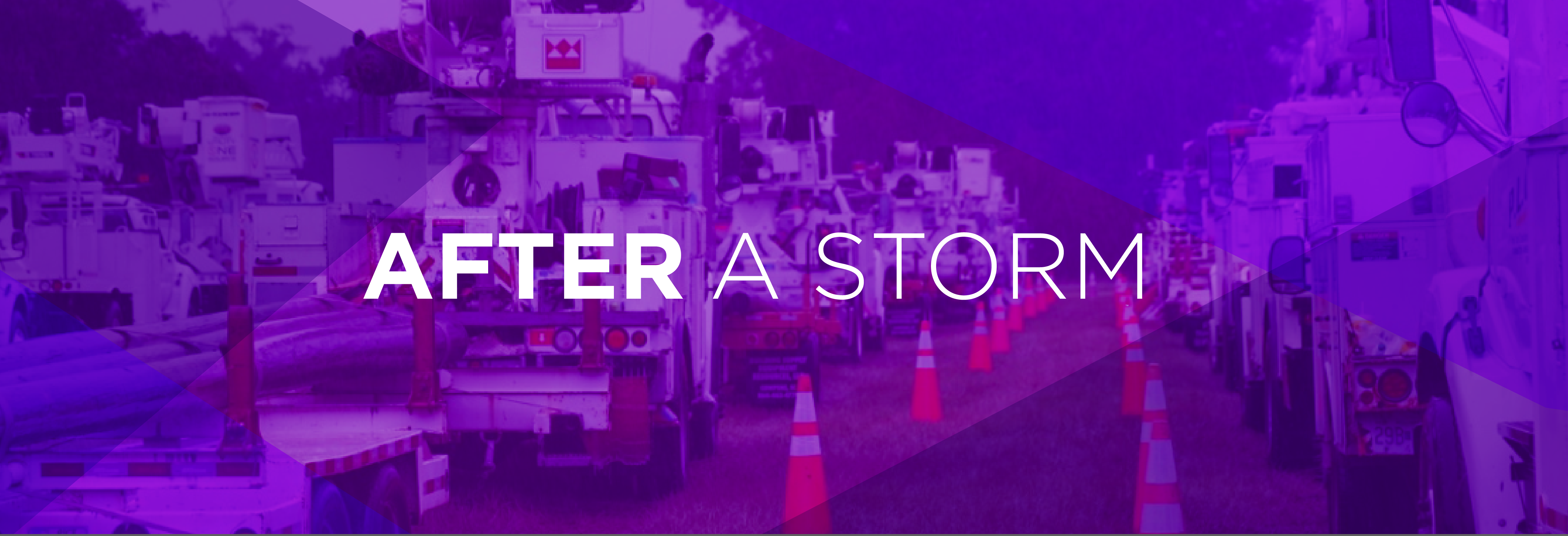
RETURNING HOME-ASSESS DAMAGE
If your home or business is damaged and it is safe, turn off your main breaker to prevent fires. If appliances are wet, turn off each appliance’s main breaker. Once you’ve turned the breaker off, unplug the wet appliance.
If fuses blow when your power is restored, turn off the breakers and contact a licensed electrician. Always call an electrician or an appliance repair service if in doubt.
DEBRIS CLEANUP
Once the storm has passed, ensure that you and your home are safe while power is being restored. Do not make piles that interfere with utility trucks. Keep piles away from power lines, transformers and downed lines for safety and speedy restoration. Call your county’s emergency operations center if public roadway debris prevents utility and emergency vehicle access.
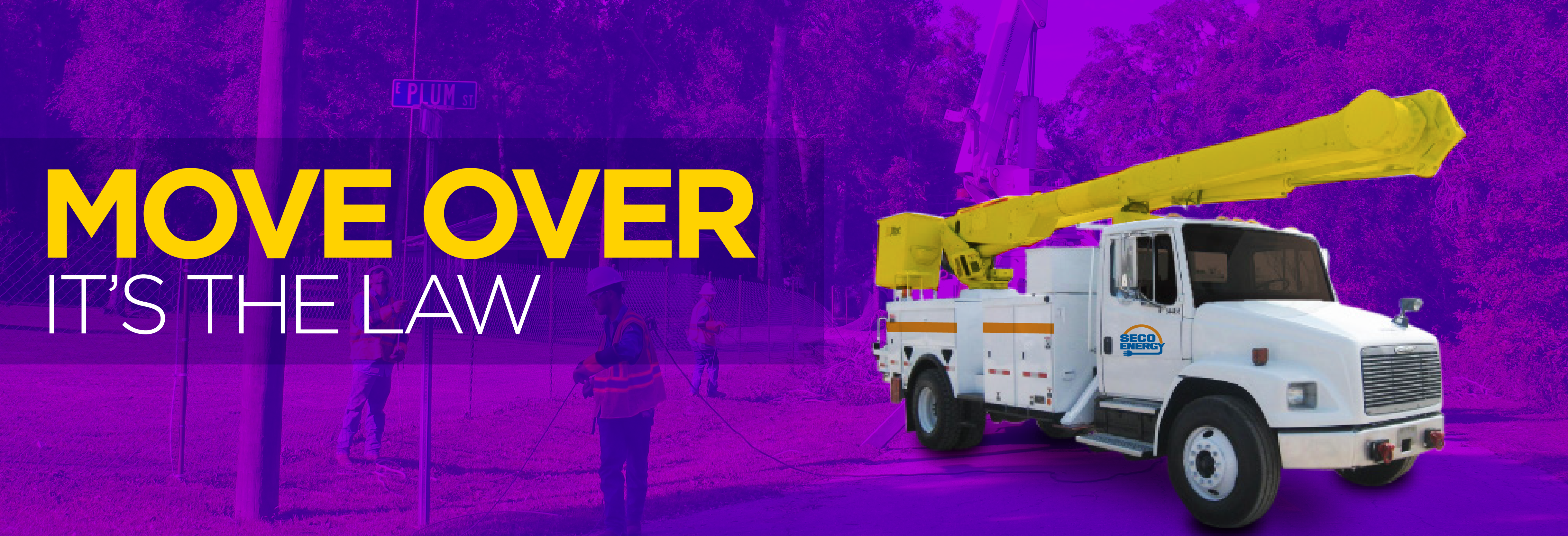
• Move over a lane for law enforcement, emergency, sanitation, utility vehicles and tow trucks.
• If you can’t move over, slow to 20 mph less than the posted speed limit.
• If the posted speed limit is 20 mph or less, slow down to 5 mph.
#MoveOverFL
Read the full September 2019 SECO News online.



